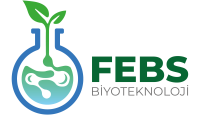The effect of silk protein on the health of athletes
Both animal and clinical studies have been conducted on silk proteins’ effects on the components of metabolism. According to these studies:
• Inhibition of tyrosine kinase enzyme activity
• Lipid peroxidase enzyme activity inhibition
• Antimicrobial activity
• Antioxidant activity
• It’s effect on insulin metabolism has been determined.
• Positive effect on post-workout endurance and hormone levels
SILK PROTEIN’S STUDY RESULTS
The benefit of amino acid powder was examined in endurance tests on athletes.
In animal studies, repeated swimming exercise showed a significant decrease in body weight gain, while treatment with hydrolyzed silk powder increased endurance. It has been observed that tissue damage increases blood parameters but reduces glycogen and blood sugar.
In the human adaptation of this study, silk hydrolyzate specially prepared for a group of athletes was added to their meals and compared with the placebo group.
A statistical comparison of total calories, protein, carbohydrates, and lipids consumed during breakfast, lunch, and dinner was made, and it was revealed that there was no significant difference between the two groups.
This result indicates that it is controllable and reliable as a nutriment.
The serum lactic acid concentration of the control group after the training was higher than the experimental group. A decrease was observed in corticosterone and testosterone levels in the control group, while an increase was observed in the experimental group. While ALT level was unchanged in the experimental group, it increased in the control group. It was observed that there was a statistical increase in swimming speed in the experimental group compared to the 4mmol/L lactate concentration reference.
CONCLUSION
The search for new supplements other than anabolic steroids led to the establishment of the protein industry; due to proteins, increasing the muscle gain and endurance of athletes. However, many products which are based on misleading information are being sold in the market.
The evaluation of the results of scientific studies, the evaluation of the risks that may arise from it, and the inference of the benefits should only be made by scientists who are experts on the subject.
Within the scope of this subject, as the FEBS BIOTECHNOLOGY’s research team, our studies continue under both in vitro, in vivo, and clinical evaluations, and as a conclusion of the results we have obtained, we have worked on the formulations of high digestibility snack sports supplements with hydrolyzed silk peptide. Our products are formulated for the body’s resting state after activity and training and are suggestioned to use after heavy activity.
PARAMETERS IN ATHLETE HEALTH
Before proceeding to inform about the effects of silk protein on the health of athletes, it is necessary to explain the concept of “training adaptation”. A living organism is harmonious and in a state of equilibrium as long as the living environment does not change. These organisms do not change at all in short periods, as the catabolic (big molecules breaking down into small molecules) processes -that allow the cells to break down and consume energy-, and the anabolic (small molecules to combine and large molecules to come together) processes that renew the cells and fill their energy reserves are in balance.
The basis of physical training is to disrupt this balance. To train, the skeletal system, and muscles; is a controlled catabolic stimulus that puts connective tissues under certain stress and discharges energy stores. During the rest period after the training, the body tries to adapt to a lifestyle that includes this training style. Thus, he is in a better state than he was before the training. This is called super adaptation. Superadaptation occurs when the body becomes more adaptable to the stresses of training. Chemical adaptation to training includes more enzymes and cellular energy cyclers to carry out chemical reactions, greater storage of glycogen and other fuels, and more lactic acid neutralizers in the blood. Muscles grow in volume, tendons become stronger, and blood vessels enlarge. Even our nervous system and hormonal system adapt to the stress of training.
